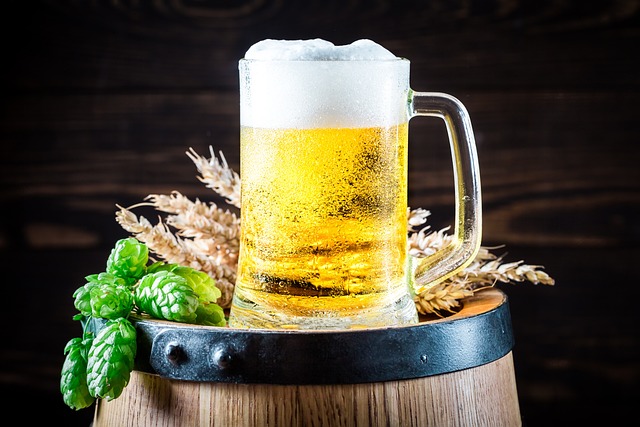
Avid beer drinkers often picture their favorite beverage as a golden nectar. However, the brewing process also generates a significant amount of waste.
Fortunately, researchers have been exploring ways to repurpose these byproducts. Several companies have recently introduced innovative systems to transform beer waste into vegan leather and ingredients.
But what exactly are beer waste and vegan leather, and how does this recycling process benefit the environment?
What is Beer Waste?
Beer is made from barley and other grains, and its production generates a significant amount of waste. This waste primarily takes the form of brewers' spent grain (BSG). BSG is composed of barley malt grain husks left over after extracting flavor for brewing, and is rich in protein and fiber. However, disposing of it properly has presented several challenges.
For every liter of beer produced, approximately 200g (7oz) of BSG is produced as well. Globally, this adds up to about 37 million tonnes per year, or roughly 340 double-decker buses per hour. With beer sales expected to rise about a third in the next seven years, the amount of BSG will only increase.
Approximately 70% of BSG is rerouted for cattle feed, while 10% is utilized for biogas production. Roughly 20% is disposed of in landfills, where it decomposes and produces methane, a greenhouse gas that exacerbates global warming. Disposing of the BSG also presents an additional cost for beer producers, so companies have been searching for alternatives.
As BSG production increases, the importance of finding suitable ways to recycle it safely and sustainably cannot be overstated.
A New Way to Deal with BSG

Recent studies by the American Chemical Society have refined a process for effectively extracting protein from brewers’ spent grain (BSG) using the enzyme alcalase. Researchers have achieved 83% protein retention so far and continue to improve the process.
Swiss start-up Upgrain has developed a system to transform BSG into protein- and fiber-rich ingredients, which can serve as plant-based protein alternatives to soy and wheat, as well as a key component in vegan milk. The company has already implemented this system at Brauerei Locher, Switzerland's second-largest brewer, to upcycle its BSG waste.
The Estonian biotech company Äio is utilizing fermentation to convert BSG into a palm oil substitute, thereby reducing reliance on large plantations that drive mass deforestation. Meanwhile, materials-innovation company Arda has refined a process to convert extracted BSG proteins into vegan leather. Their early prototypes resembled a "flapjack," but after further development, they successfully created a flexible, leather-like material—even available in different colors. According to Arda, just 10% of the world’s spent grain supply would be enough to meet global leather demand.
Looking ahead, advancements in protein extraction and large-scale processing could help transform BSG from environmentally harmful waste into a valuable, sustainable resource.
Beer is made from barley and other grains, and its production generates a significant amount of waste. This waste primarily takes the form of brewers' spent grain (BSG). BSG is composed of barley malt grain husks left over after extracting flavor for brewing, and is rich in protein and fiber. However, disposing of it properly has presented several challenges.
For every liter of beer produced, approximately 200g (7oz) of BSG is produced as well. Globally, this adds up to about 37 million tonnes per year, or roughly 340 double-decker buses per hour. With beer sales expected to rise about a third in the next seven years, the amount of BSG will only increase.
Approximately 70% of BSG is rerouted for cattle feed, while 10% is utilized for biogas production. Roughly 20% is disposed of in landfills, where it decomposes and produces methane, a greenhouse gas that exacerbates global warming. Disposing of the BSG also presents an additional cost for beer producers, so companies have been searching for alternatives.
As BSG production increases, the importance of finding suitable ways to recycle it safely and sustainably cannot be overstated.
Can you think of other solutions that involve recycling one product into another?
